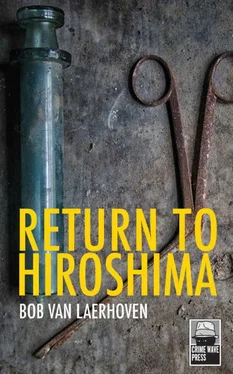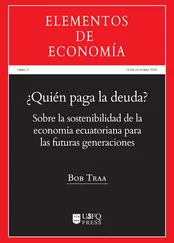“And that’s proof enough as far as you’re concerned that Norikazu is who he says he is?”
“It’s proof enough that he has contacts at different levels and in different domains. Not exactly rocket science when you remember that he apparently has chief commissioner Takamatsu in his back pocket.”
“But you’re still a free man. It all seems pretty quiet in that department.”
“I’m not sure that’s a good sign.”
“But I still find it hard to believe he’s the rejected son of the emperor.”
Takeda suddenly leans closer, his eyebrows pinched. He’s more put out than angry, but his face is enough to make her pull back.
“This is Japan. What we believe is one thing, what we do is another.”
* * *
His words now haunt her mind. What did he mean by them?
She had said: you’re still a free man. She’s not really sure what Norikazu knows about her role in the affair.
This means that Takeda isn’t interested at all in her fate.
Why did she say she was in love with him?
She has no answer.
It seemed like a good idea at the time.
Like the inspiration that spurs her on when she’s taking photos in her studio.
It’s like being on speed.
You can do whatever you like.
A quiver runs through her, starting in her groin and spreading out to her entire body.
She hears destinations being called in Japanese and English.
Should she get on a train and close her eyes, let it take her away, far from here?
Hiroshima – Prince Norikazu – the burning city – August 6 th1945
Wisps of smoke wafted from the prince’s ripped clothes and shoes. His body felt as if it was made of tinder wood. Where his gaze once fell on the buildings of Hiroshima, he could now see the horizon on every side. A smoking, burning horizon, jagged, irregular, daubed with shades of stone where the fires had burnt themselves out. A bizarre sense of satisfaction took hold of him: he had often dreamed of a world as deformed and misshapen as himself. His wish had come true. He had encountered delirious people on his path through the rubble, some badly burned, others deranged. One of them had screamed that the Americans had used a ‘death ray’. Norikazu had assured them that a new Emperor of Japan would soon be at the head of an army of supermen. They all ran past him like headless chickens, cackling from fear and pain.
Above him: a dark, turbulent sky, riddled with red flames.
In front of him: a tottering woman, her right eye the size of a pomegranate. A man with shards of glass in his head, lurching, ready to fall.
Beside him: a naked man, his crotch charred to the bone, holding a rain pipe to his scorched genitals and muttering incomprehensibly.
There were patches of pale yellow in the black sky. The thick clouds of smoke slowly dispersed. The firestorm raged on towards Hiroshima Station.
To his right, in the smouldering ruins of a wood built house, he saw a dead baby, its skin the colour of pastry that has been left too long in the oven. The black-red blotch on its right heel drew Norikazu’s attention. He moved in, leaned closer. It wasn’t a blotch. Someone had painted the imperial chrysanthemum on the child’s heel. Norikazu peered closely at the symbol, his eyes parched and smarting. He could hardly believe what he saw, but he was convinced this was a sign he could not ignore. He took the tiny corpse in his arms. It was as hard as stale bread. The misshapen prince carried it away from the fire, the smoke and the countless dead.
The Hiroshima-Kyoto motorway – inspector Takeda – March 16 th1995
He had done the right thing to leave Beate Becht behind, Takeda repeated over and over. At this time of day, the motorway to Kyoto is relatively quiet, the motorway busses carrying tourists to and from Kyoto being its primary users. He’s paid the toll and is planning to arrive in Kyoto in five hours, give or take, where he intends to leave the rental Mazda and take the shinkansen train to Tokyo. He hasn’t called for an appointment with the members of the Public Security Commission. He figures it’s too risky. One of the members could easily be a puppet working for Norikazu. He plans to make his appointment at the very last minute to limit potential leaks to an absolute minimum. Takeda presumes that – for security reasons – they won’t let him speak directly to the senior members of the commission responsible for supervising police services and that he’ll have to work his way past some lesser civil servants first. But he’s still convinced that a single glance at Prince Norikazu’s birth certificate will be more than enough to set the bureaucratic wheels in motion.
Takeda knows that the Commission doesn’t have a good reputation. A couple of years earlier they were given a severe dressing down by the UN Commission for Human Rights because of a corruption cover-up involving senior police officials. Ms Evatt, chair of the UN Commission, lambasted the Japanese government for maintaining two different kinds of law: strict rules for the man in the street, and not so strict for the police, the politicians and the industrialists.
Takeda is well aware that the Commission might want to sweep the entire affair under the carpet and propose a little horse trading. He can live with a little horse trading. That’s the reason he decided not to bring the photographer along… the only reason.
She’ll make the most of her situation, he figures. Once she’s back in Germany she’ll take a good look at her photos and force herself to believe they’re stage-managed; bizarre, alarming, dark, sombre, like her earlier work.
He failed to mention when they first met what he had read about her in Yomiuri Shimbun : her alcohol and drugs problem, the suicide attempt a year earlier that she survived by the skin of her teeth, the widely publicised and highly ambiguous affairs with both men and women. Now that he knows her better he finds it hard to believe it’s all true, but a reputation is like a visiting card: the first impression is what counts.
He’s also convinced that westerners are too principled , certainly when it comes to situations elsewhere in the world. A headstrong loud-mouth could completely sour any meeting with the Commission.
Takeda has another reason for acting as he did. He’s thought long and hard about what he wants from the Commission in return for discretion: transfer to a quiet part of the country, somewhere remote, promotion and perhaps a change of identity. He wants an office job with a good pension. Takeda’s had enough of the grief. He doesn’t want a career. He wants to end his existence in peace, settle scores with his sexual demons, his suppressed thirst for blood, his uncontrollable anxiety. The pressure that settled on his shoulders the day he turned twenty-seven, traced his father and did what he did to him, has to go once and for all.
Hiroshima – the Righa Royal Hotel – Becht and Norikazu – March 16 th1995
Beate Becht opens her hotel room door. The suite seems faded and grey, as if she had returned to the place of her birth after years of absence to find it covered in dust and mould. She makes her way to the bedroom. A tall man is lying on her bed with his hands behind his head, staring at the ceiling.
“They tell me I have no sense of humour,” says the man in perfect English. “I beg to differ. I have a highly developed sense of satire, but my situation has been so ghastly for so long that I no longer dare to admit it. Do you understand, Miss Becht?”
Читать дальше












